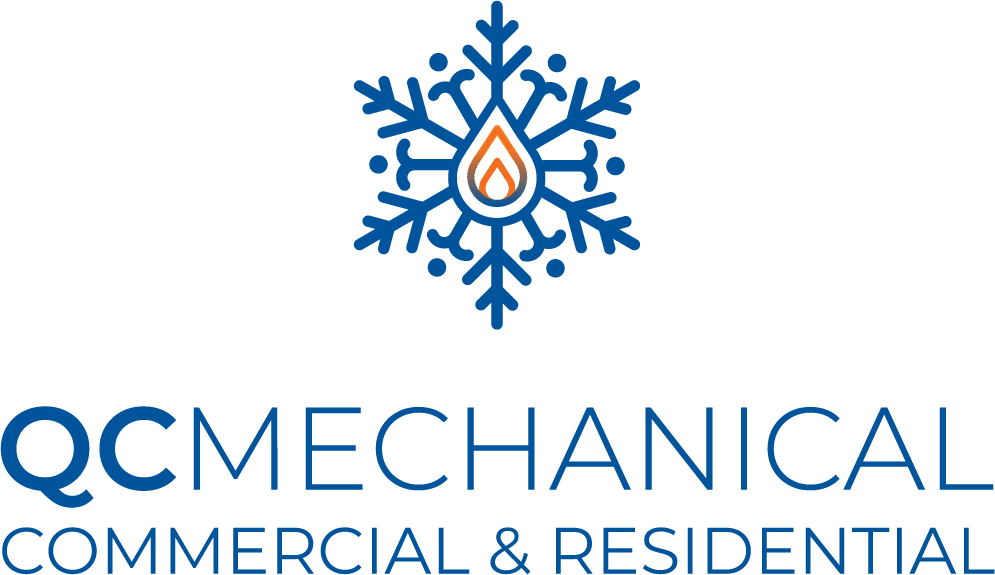Residential
Living in Charlotte, NC, where temperatures can soar during the summer months, having a reliable air conditioning system is essential. However, air conditioners can sometimes encounter issues that require professional attention.
Living in Charlotte, NC, where temperatures can soar during the summer months, having a reliable air conditioning system is essential. However, air conditioners can sometimes encounter issues that require professional attention. In this article, we will explore the common air conditioning problems that necessitate repair, signs that indicate your AC needs immediate attention, the importance of hiring certified technicians for repairs, the key repair steps involved, and maintenance tips to prevent frequent breakdowns.
What are the common air conditioning issues that require professional repair?

Leaks in the air conditioning system
One of the common problems that may arise with an air conditioning system is leaks. These leaks can be due to a variety of reasons such as a cracked drain pan or a blocked condensate line. If you notice water pooling around your unit, it’s essential to contact a professional technician to diagnose and fix the issue promptly.

Improper cooling or insufficient airflow
One of the common problems that may arise with an air conditioning system is leaks. These leaks can be due to a variety of reasons such as a cracked drain pan or a blocked condensate line. If you notice water pooling around your unit, it’s essential to contact a professional technician to diagnose and fix the issue promptly.
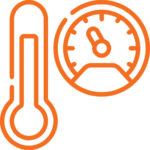
Thermostat Malfunctions
A malfunctioning thermostat can lead to inconsistent temperature settings and cause discomfort in your home. Whether the thermostat is unresponsive or not accurately reflecting the temperature, it is crucial to have it checked and repaired by a professional to ensure your AC operates efficiently.
How to know when your air conditioner needs repair?
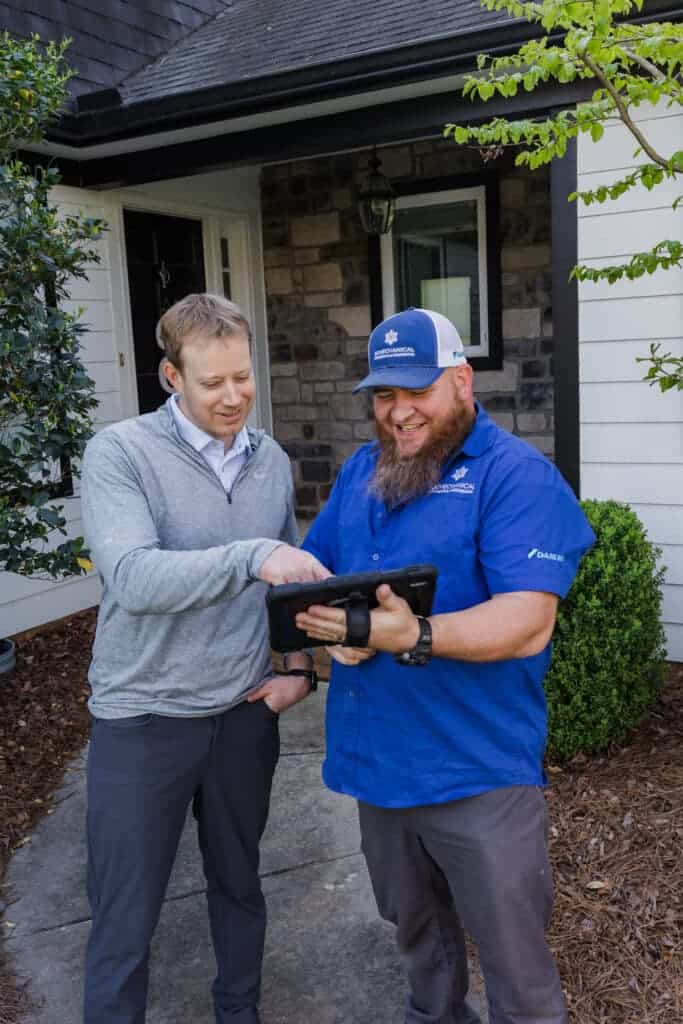
-
Unusual Noises or Strange Odors
If your air conditioner starts making unusual noises like grinding, squealing, or banging sounds, or emits strange odors such as musty or burning smells, it indicates underlying issues that require immediate attention. Ignoring these signs can lead to more significant problems and potentially costly repairs. -
Inconsistent temperature in different areas of your home
Do you notice variations in temperature levels from room to room in your house? This could be a sign of ductwork leaks, improper insulation, or a failing AC unit. Seeking professional help to diagnose and rectify the problem can restore comfort and balance to your indoor environment. -
An increase in energy bills without a change in usage
If you observe a sudden spike in your energy bills without any significant change in your cooling habits, it could be indicative of an inefficient air conditioning system. A certified technician can evaluate your unit’s performance and recommend necessary repairs to improve energy efficiency and reduce your utility costs.
Why is it important to hire a certified technician for AC repair services?
-
Correct diagnosis and efficient repair solutions
By engaging a certified technician for your AC repair needs, you benefit from their expertise in diagnosing issues accurately and providing efficient repair solutions. Their in-depth knowledge and training enable them to address problems effectively, ensuring your air conditioner functions optimally. -
Safety precautions and adherence to industry standards
Professional technicians prioritize safety during repairs and adhere to industry standards to maintain the integrity of your air conditioning system. They have the necessary tools and equipment to work safely with electrical components and refrigerants, reducing the risk of accidents or damage to your unit. -
Warranty on repair services and parts
Most certified AC repair services offer warranties on both the repairs conducted and the parts used. This provides you with added peace of mind knowing that in case of any issues post-repair, you can rely on the warranty for further assistance without incurring additional costs.
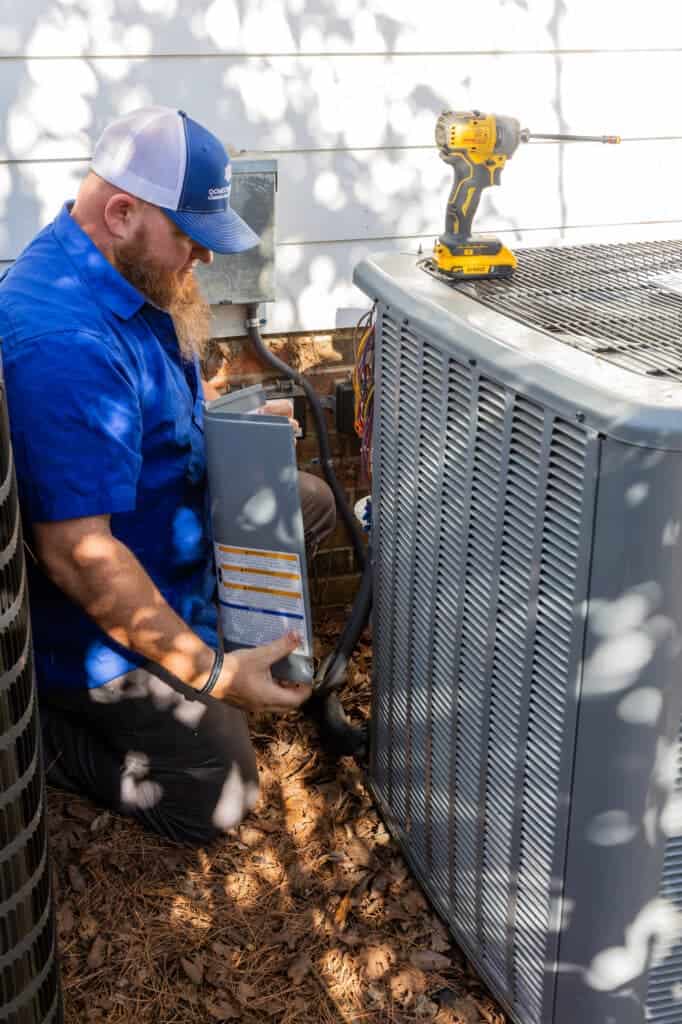
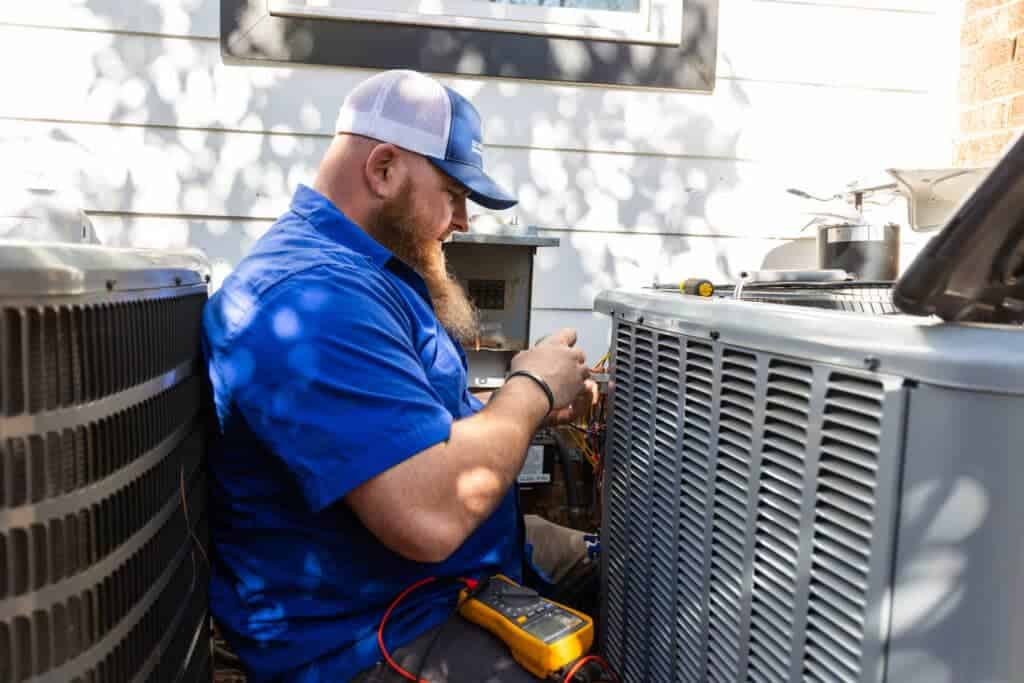
What are the key steps involved in repairing an air conditioning system?
Initial inspection and diagnosis
Upon contacting a professional technician, the first step in repairing an air conditioning system involves a thorough inspection and diagnosis of the unit. This process helps identify the root cause of the problem and allows for a targeted repair approach.
Repair or replacement of faulty components
Once the issue is diagnosed, the technician will proceed with repairing or replacing the faulty components. Whether it’s the compressor, fan, refrigerant lines, or other parts, quality repairs are crucial to restoring your AC’s functionality.
Testing the system for proper functionality
After the repairs are completed, the technician will test the system to ensure it functions correctly. Testing involves checking the airflow, temperature output, thermostat settings, and overall performance of the air conditioning unit to verify that the repairs have been successful.
How to maintain your air conditioning system to prevent frequent repairs?
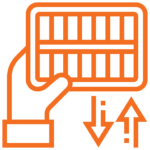
Regularly replacing air filters
One of the simplest yet most effective ways to maintain your air conditioning system is by regularly replacing the air filters. Clogged or dirty filters can restrict airflow, strain the system, and lead to inefficiency. By replacing filters according to the manufacturer’s recommendations, you can improve air quality and extend the lifespan of your unit.

Cleaning the outdoor condenser unit
The outdoor condenser unit of your air conditioner can become clogged with dirt, leaves, and debris over time, hindering its performance. Periodically cleaning the unit and clearing the surrounding area of obstructions can enhance airflow and prevent potential damage to the system.

Scheduling annual maintenance checks with HVAC professionals
To ensure your air conditioning system operates smoothly throughout the year, it’s advisable to schedule annual maintenance checks with HVAC professionals. During these inspections, technicians can identify and address minor issues before they escalate, optimize system performance, and help you avoid unexpected breakdowns.
